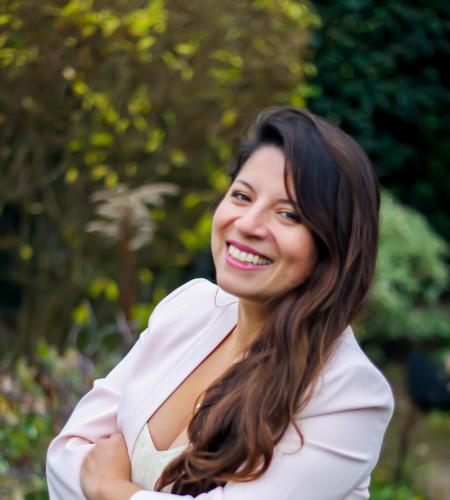Community

Research Associate at the Centre for the Study of Existential Risk at the University of Cambridge where she works at the interface of science and policymaking at the project 'A Science of Global Risk'. She is a Peruvian scientist that started her career as a researcher on molecular biology, neurosciences, biomedicine and developmental biology. After having the opportunity to study in Peru, Finland, Sweden and Australia she decided to use her experience and scientific background to conduct research on the risks of emerging technologies to provide scientific evidence and advice to policymakers and international institutions around the world. Some of these organizations include the OEFA from the Ministry of Environment in Peru, the European Commission, the Geneva Centre for Security Policy, the University of Cambridge, the Global Young Academy, World Health Organization, United Nations Office for Disaster Risk Reduction (UNDRR), UN Biological Weapon Convention, the World Economic Forum (WEF) and private organizations.
Also, she always wondered how we can help to unleash the professional talent in Latin America. So, in 2015, she founded the nonprofit Ekpa’palek which is focused on the empowerment of Latin American young professionals through free mentorship programs in Spanish, Quechua, English and Portuguese. To date, they have helped more than 400 students and professionals to reach their academic dreams.
She has had the opportunity to become a UN Women champion for women's economic empowerment, a UNESCO delegate, an Emerging Leader at the Atlantic Dialogues, a Fellow at the Asian Forum for Global Governance, an Expert Reviewer for the European Commission, an advisor at Women Economic Forum, the lead for the Science Advice working group at the Global Young Academy, an Eisenhower Fellow, an expert reviewer for UNDRR and the International Science Council, a World Economic Forum Fellow and an advisor to different mentorship initiatives.
Her current work is focused on a variety of topics such as science policy, international security, risks of emerging technologies, science diplomacy, foresight, co-creation of policy and management of Global Risks (such as nuclear war, the misuse of Artificial Intelligence, bioweapons, human-engineered pandemics, etc).

